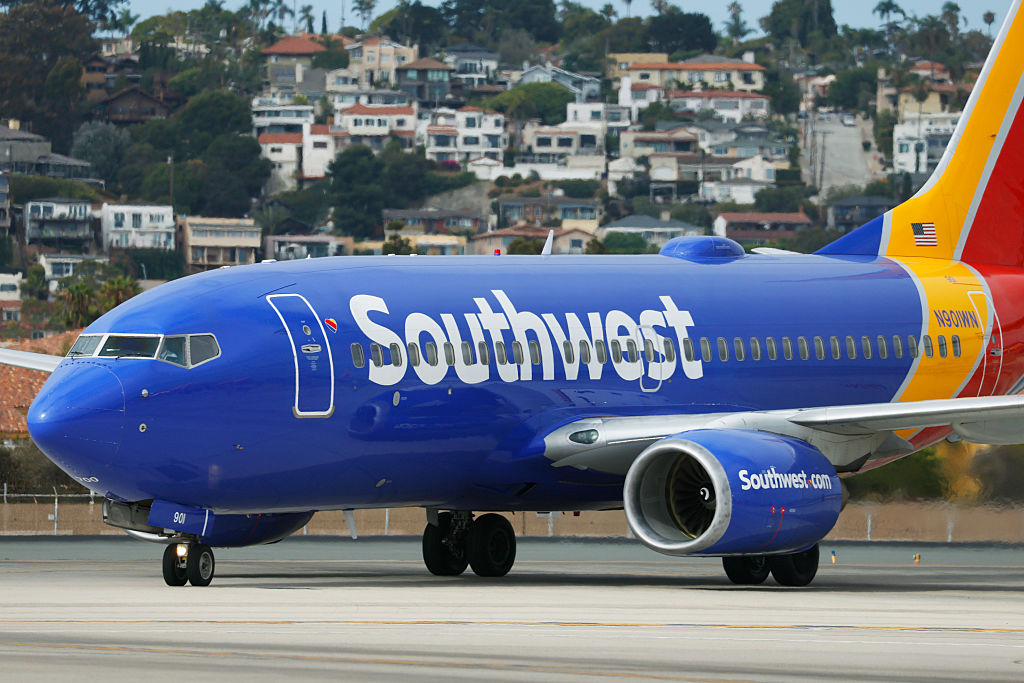
Source: Kevin Carter / Getty
Plus-size passengers will have to pay more if they need an additional seat, Southwest Airlines announced recently. This reverses a previous policy, “Customer of Size,” that allowed passengers to fly without further cost if they required the extra room.
“We are updating many policies as we prepare our operation, employees, and customers for assigned seating on January 27, 2026,” the airline told Newsweek. “To ensure space, we are communicating to customers who have previously used the extra-seat policy they should purchase it at booking.”
This decision reflects other changes at the airline. After years of allowing passengers any seat they wanted, Southwest will transition to assigned seating next year. Tickets for 2026 travel with the new policy have been on sale since July 29. Southwest also ended its “bags fly free” policy a few days later.
“Our employees are excited about the changes,” Southwest CEO Bob Jordan told the New York Times in July. “Because if you think about it, if in the open-seating world a family gets on and they can’t sit together, the flight attendant is having to police that in the cabin.
He added, “Our open-seat boarding can cause a lot of pre-boards, and our agents are having to police that. You have people who paid for early boarding, and then we have more pre-boards than anybody else. So folks that paid for earlier boarding are going, ‘Well, wait, why?'”
Given commentary on their IG posts, customers are not as happy about Southwest’s policy changes.
The new restrictions on larger passengers reflect the company’s business overhaul which has overturned popular, customer-friendly policies with ones that better reflect bottom-line financial goals. Southwest was among the few airlines that accommodated plus-size travelers with a fee-free extra seat, either via a refund for a second seat, or the ability to purchase two for the price of one.
Now, a plus-size passenger who can’t fit between the armrests must pay for a second seat. They can still request a refund, but only if the flight is not sold out, the tickets are in the same fare class and the request is submitted within 90 days of the trip.
The official policy reads: “Customers who encroach upon the neighboring seat(s) should proactively purchase the needed number of seats prior to travel to ensure the additional seat is available. The armrest is considered to be the definitive boundary between seats; you may review information about the width of passenger seats. In addition, Southwest may determine, in its sole discretion, that an additional seat is necessary for safety purposes. Southwest will refund the extra seat purchased upon request once travel is complete.”
Delta Airlines is now the only major U.S. based airline that doesn’t require plus-size passengers to purchase an additional seat in advance, but if flight personnel deem that they are taking up more space than thier seat allows, they may reassign them to a different seat or flight.







